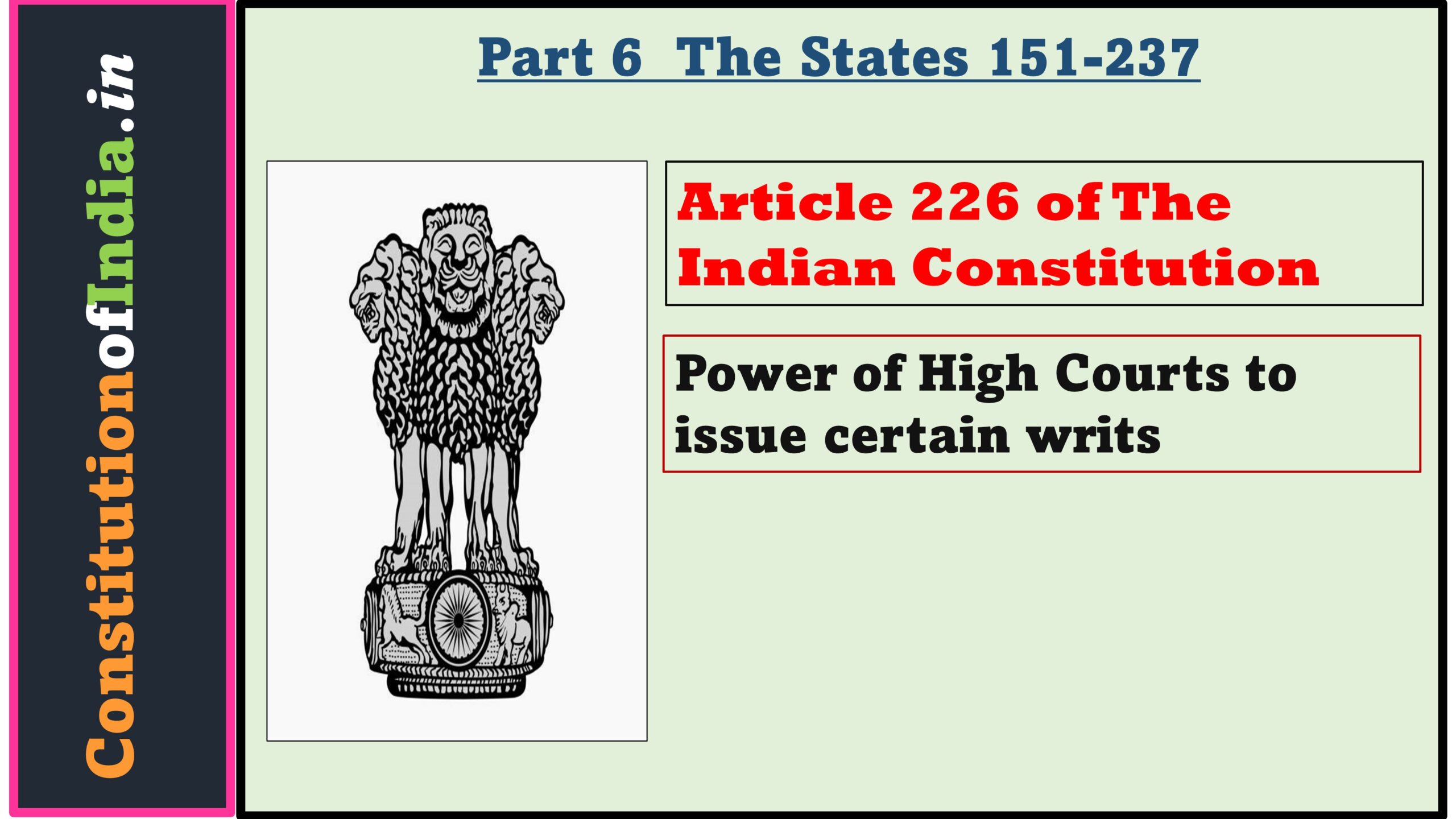Article 226 of Indian Constitution Power of High Courts to issue certain writs.

Article 226 Power of High Courts to issue certain writs – Constitution Of India.
(1) Notwithstanding anything in article 32 3 *** every High Court shall have power, throughout the territories in relation to which it exercises jurisdiction, to issue to any person or authority, including in appropriate cases, any Government, within those territories directions, orders or writs, including 1 [writs in the nature of habeas corpus, mandamus, prohibition, quo warranto and certiorari, or any of them, for the enforcement of any of the rights conferred by Part III and for any other purpose.
(2) The power conferred by clause (1) to issue directions, orders or writs to any Government, authority or person may also be exercised by any High Court exercising jurisdiction in relation to the territories within which the cause of action, wholly or in part, arises for the exercise of such power, notwithstanding that the seat of such Government or authority or the residence of such person is not within those territories.
(3) Where any party against whom an interim order, whether by way of injunction or stay or in any other manner, is made on, or in any proceedings relating to, a petition under clause (1), without— (a) furnishing to such party copies of such petition and all documents in support of the plea for such interim order; and (b) giving such party an opportunity of being heard, makes an application to the High Court for the vacation of such order and furnishes a copy of such application to the party in whose favour such order has been made or the counsel of such party, the High Court shall dispose of the application within a period of two weeks from the date on which it is received or from the date on which the copy of such application is so furnished, whichever is later, or where the High Court is closed on the last day of that period, before the expiry of the next day afterwards on which the High Court is open; and if the application is not so disposed of, the interim order shall, on the expiry of that period, or, as the case may be, the expiry of the said next day, stand vacated.
(4) The power conferred on a High Court by this article shall not be in derogation of the power conferred on the Supreme Court by clause (2) of article 32. Article 226A Constitutional validity of Central laws not to be considered in proceedings under article 226. Rep. by the Constitution (Forty-third Amendment) Act, 1977, s. 8 (w.e.f. 13-4-1978).
Summary of Article 226 of The Indian Constitution
A simplified summary of Article 226 of the Constitution of India:
| Provision | Summary |
|---|---|
| (1) | High Courts in India can give orders or writs to enforce rights and for other purposes. |
| (2) | This power applies to the areas where the High Court has authority. It also applies if the issue partly happens there, even if the person involved is not in that area. |
| (3) | If someone disagrees with a temporary order, they can challenge it. The court must hear both sides and decide within two weeks, or the order is canceled. |
| (4) | The power of High Courts doesn’t take away from the Supreme Court’s power. Both can enforce fundamental rights. |
| Article 226A (Repealed) | There was a rule about not questioning Central laws in some cases, but it was removed in 1977. |
This simpler language summary breaks down the main points of Article 226 and briefly mentions the repealed provision, Article 226A.